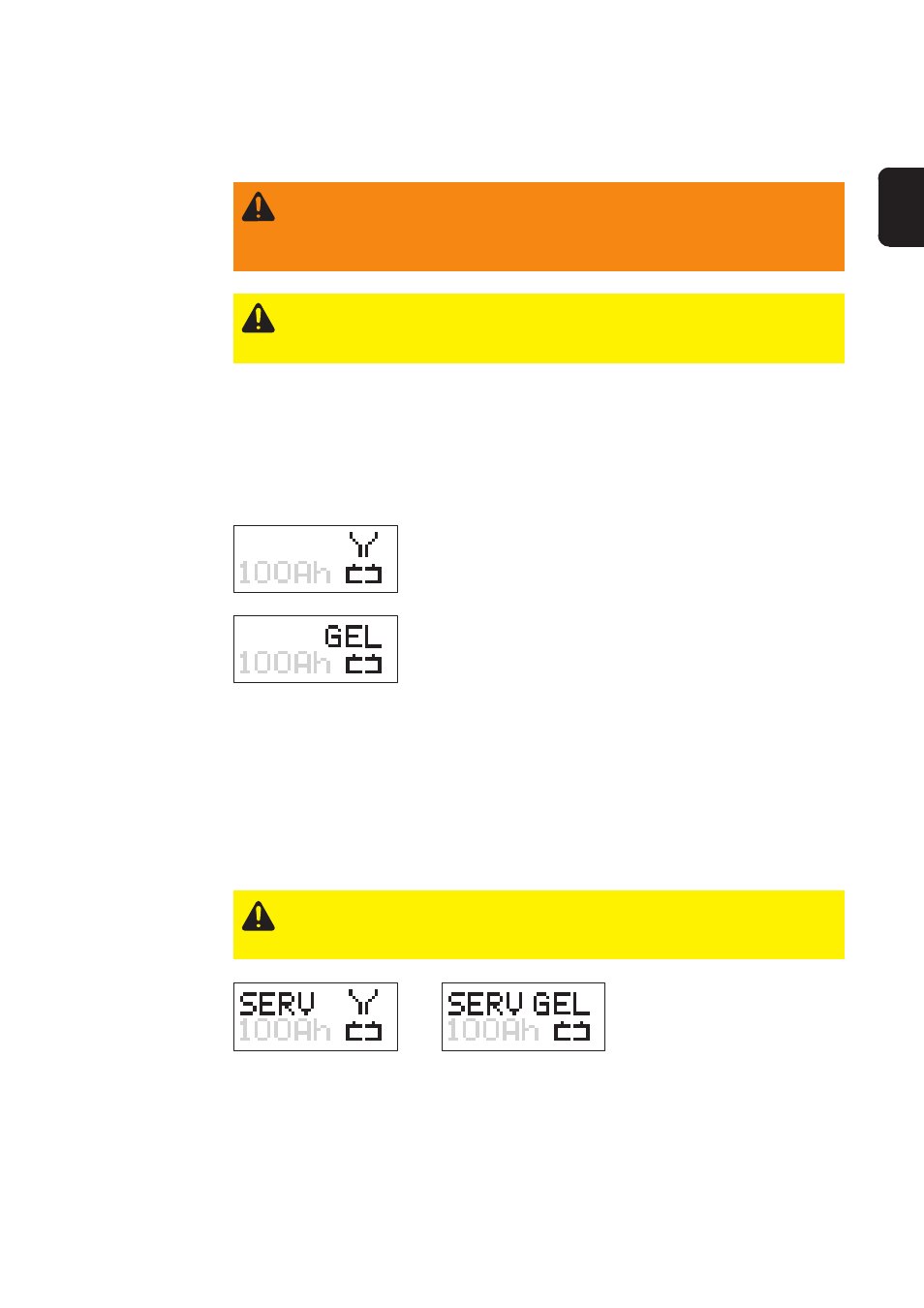Charging – Fronius Acctiva Professional 42 User Manual
Page 25

3
EN
Service charging - batteries
with liquid electrolyte
Service charging - batteries
with gel-type electrolyte
General remarks
Caution! Danger of damage to the in-car electronics by service charging
voltage. Before beginning service charging, disconnect battery from vehicle
power supply.
Important! The success of service charging depends on the degree of sulphation of the
battery.
For use whena battery fault is suspected (e.g. sulphation)
-
battery is charged to maximum acid concentration
-
plates are reactivated (degradation of sulphate layer)
Caution! Setting the mode incorrectly can result in product damage and poor
charging performance. Always set the mode according to the type of battery to
be charged.
Warning! Risk of injury and damage from exposed, rotating vehicle parts.
When working in the vehicle’s engine compartment, take care that hands, hair,
items of clothing and charger leads do not come into contact with moving parts,
e.g. fan belt, fan, etc.
Charging
The charger is fitted with the following protection devices for safe handling:
-
De-energised charging terminals ... no sparks when clamping onto battery
-
Protection against short-circuiting of charging terminals/polarity reversal
-
Protection against thermal overload of the charger
Service charging
modes
Utilisation in
accordance with
„intended purpo-
se“
Important! Do not use this device to charge non-rechargeable batteries (dry batteries,
primary cells, etc.).
„Wet“ mode:
For charging liquid (Pb, Ca, Ca silver) or fixed (GEL, AGM,
MF, sealant) electrolyte batteries that are used in starter or
traction applications.
„Gel“ mode:
For charging liquid (Pb, Ca, Ca silver) or fixed (GEL, AGM,
MF, sealant) electrolyte batteries that are used in standby
applications (e.g. emergency power systems) or at tempe-
ratures above 35°C.